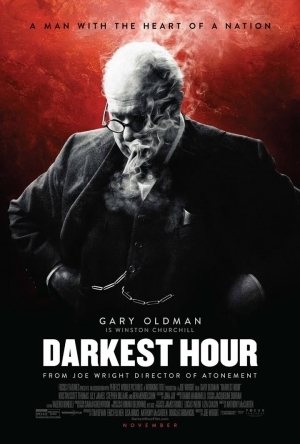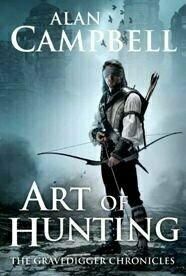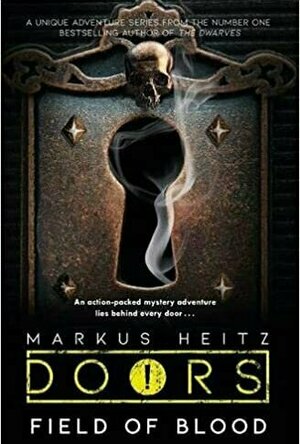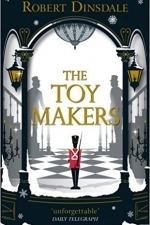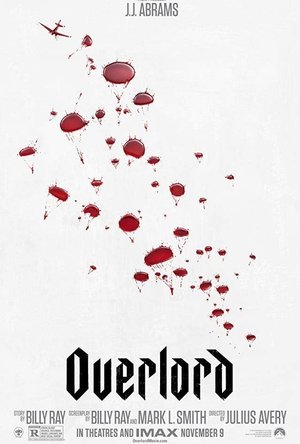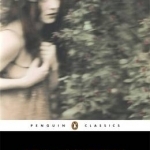
The Lost Estate (Le Grand Meaulnes)
Adam Gopnik, Henri Alain-Fournier and Robin Buss
Book
The Lost Estate is Robin Buss's translation of Henri Alain-Fournier's poignant study of lost love,...
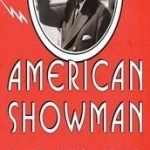
American Showman: Samuel Roxy Rothafel and the Birth of the Entertainment Industry, 1908-1935
Book
Samuel "Roxy" Rothafel (1882-1936) built an influential and prolific career as film exhibitor, stage...
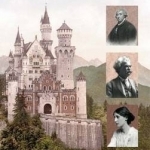
Germany: Beyond the Enchanted Forest: A Literary Anthology
Book
'German military figures had a certain terrifying glamour,' wrote Patrick Leigh Fermor, recalling...
With the Night Mail: Two Yarns About the Aerial Board of Control
Bruce Sterling, Rudyard Kipling and Matthew De Abaitua
Book
"SHE: Do you like Kipling? HE: I don't know, I've never Kippled!" If you've never read Rudyard...
Gareth von Kallenbach (980 KP) rated Darkest Hour (2017) in Movies
Jul 11, 2019
Winston Churchill is a very well know historically figure. He was known for his powerful speeches and bigger than life personality. This film takes a look at the early days of him being Prime Minister, during some of the most volatile days in the history of Europe. Not only does the story delve into the politics and struggles of Churchill to put forth his agenda in a hostile climate but also shows him at his most vulnerable. One example is after delivering his first radio address to the nation he walks home alone and to talk with and be reassured by his wife, Clementine Churchill (Kristin Scott Thomas), that his speech was good and people could hear him.
Gary Oldman is spectacular in his role as Chruchill. From the iconic speeches to the light moments with his family and personal secretary, Elizabeth Layton (Lily James), he puts forth a great performance. The supporting cast is great as well, highlighted by Mendelsohn, Scott Thomas and James. The flow of the film really worked, under direction of Joe Wright (Atonement, The Soloist, and Pan). The two hour and five minute run time felt shorter and the movie really moved along. There were some points that they showed some battle scenes, after all it is a World War II era film, which did feel like afterthoughts and didn’t really add anything to the movie. The tension of the moment was well done even without these scenes. Besides those scenes the movie was shot well and added to the overall feel of the movie.
This film will appeal to those who are fans of history, the World War II era specifically, and historical figures. It also is powerful and heartfelt. Really the performances of the cast are what really stuck with me and will be the reason that I watch it again.
Phil Leader (619 KP) rated Art of Hunting (The Gravedigger Chronicles #2) in Books
Nov 8, 2019
The first book follows the story of Thomas Granger, ex-Colonel with the elite 'Gravediggers' army unit now the owner and warden of a decrepit prison in a world that is literally drowning. Humans share the world with the intelligent and long-lived Unmer, for centuries their slaves until a band of telepaths overthrew them. In revenge the Unmer seeded the sees with thousands of small bottles - icusae - which are constantly producing poisonous 'brine', making the seas toxic and raising the sea level.
Granger sets off on a quest to find is estranged daughter Ianthe - herself an incredibly powerful but blind telepath - and so we see this strange and often brutal world, meeting Briana Marks the arrogant head of the telepaths and Ethan Maskeleyne, metaphysicist and hunter of Unmer treasure.
The book ends cataclysmically with Ianthe all but destroying the telepaths' power with her mind and setting the trapped Unmer prince Marquetta free at the same time as her father - now with magical armour and sword - arrives to rescue her himself.
The second book carried straight on from the first, detailing the aftermath of the battle and the Unmer's plans to once again rule, beginning with Marquetta's plan to marry Ianthe. Granger is naturally suspicious of his motives towards his only daughter. Marquetta also needs to eliminate another Unmer lord, Conquillas, who has been hired as an assassin by Briana Marks to kill Marquetta and his uncle. Conquillas is an Unmer rebel who has studied war and hunting until it is an art form to him. Marquetta plans to eliminate him by challenging him to a tournament which is rigged so that Conquillas cannot survive.
Learning of the plans, Granger decides to leave his daughter and travel to find Conquillas and warn him. But soon he has more to worry about as his Unmer sword literally has a mind of its own. Meanwhile Maskeleyne is on his own quest to discover why the unfortunate people who have 'drowned' in the brine seas (but still have a sort of life) are bringing him keys.
As can be seen from the brief description above this is a complex book. Although the story is told from four viewpoints - Granger, Ianthe, Maskeleyne and Briana Marks - the bulk of the story is carried by Granger (on his own quest) and Ianthe (following with the Unmer). Granger is a terrific character - he is gruff and insentimental and is not always a sympathetic character. But he is also very driven and always sees the solution to anything as a straight line, regardless of any obstacles on that path he will just bulldoze straight through them. Ianthe is more subtle as a character because she is essentially tagging along with Marquetta and apart from the marriage plot doesn't really contribute very much.
The world they inhabit is excellent. This is a different kind of fantasy world. Rather than being stuck in medieval worlds as tends to be the case, there is a lot of technology. There are guns and gas cutting torches for example. Everything seems to be very very old and anything enchanted by the Unmer is as dangerous to the innocent wielder as their target.
After the first book it is interesting to see more of the Unmer in action. Marquetta is a proud and determined prince, his uncle fills the role of scheming manipulator well and it is not clear if Marquetta follows his uncle or is merely another pawn in the play. Conquillas is also well drawn for the few scenes he is in, the consumate warrior and hunter while still being otherworldly and cold towards the humans that he deals with. Maskeleyne also comes to the fore in this book after being something of a villain in the first book in this book he is not at odds with the other main characters and so is a much more rounded person rather than a cipher to explain Unmer artifacts and move the plot along.
Yes this is a hard read; the chapters are long (there are only 8 chapters in the book) which means it is a long time between breaks in the narrative and the start does take a long long time to get going although a lot of the information is vital in setting up the rest of the book. Once it gets going however it flows well. In fact I would say the tournament at the end was a little rushed - some more insight into the early rounds would have been interesting I think - but as the main point is to get the final showdown this can be excused.
Overall, a fantastic second part and I eagerly look forward the the third installment.
Rating: Some slight swearing and crude references
Ross (3284 KP) rated Doors: Field of Blood in Books
Apr 8, 2021
This book sees the group enter a door that takes them to an alternate version of middle-ages France/Germany and the reign of the Frankian empire. As with the World War II element of the second book, this was more or less a passing interest to the book rather than a key element of the story.
The group have found themselves in a version of history where women rule the empire and generally take positions of power, and a building conspiracy among men seeks to reverse this and look to change this in the history books. For me, this was the most interesting aspect of the book, and one that could be plausible. Sadly, I couldn't see past some modern day people apparently conversing comfortably with people from the 9th century without issue, and there being no attempt to address this at all.
Meanwhile in the real world, we learn more about the doors, their use and the mysterious agency controlling them. We learn more in this one book than the other two put together, and between the three we now have a good amount of knowledge about these portals. Some aspects of their use don't add up though, as with any sort of time travel/portal notion.
The book ends fairly abruptly with a long voyage which is skipped over in a very 'sod it, that's the word count reached, wrap it up' style.
Overall, I was very disappointed with these books. While I liked having to piece together things from each book and start to get a feel for the world, I felt so much of it fell short. As with the other two books, it offered so much promise but fell flat.
Naomi Forrest (42 KP) rated The Toy Makers in Books
Jan 2, 2019
‘See the woman with the cage of pipe-cleaner birds, the vagrant soldier marvelling at the stuffed dogs lounging in their baskets? Keep a careful eye on them; you will see them again’.
I knew just from this descriptive ‘setting the scene’ chapter this book was going to be amazing, there was so much magic encapsulated in those first five pages. Papa Jack’s Emporium is the most wonderful shop you could imagine, a labyrinth of joy, surprises around every aisle and so much more. If you have ever seen the toy shop on Home Alone 2 that looked so amazing as a child, it has nothing on this! I was pretty sure for at least half of the book that Papa Jack was indeed Father Christmas.
After the initial chapter, the reader is introduced to Cathy, a fifteen year old who, shamefully (the year is 1906), is unmarried and pregnant. Plans are made for her to go to a special home where she will give birth and her child will be adopted. However, Cathy spots an advert looking for staff for the Emporium and runs away and so, the magic begins! The reader is catapulted into the world of the emporium and soon meets Papa Jack’s sons, Emil and Kaspar, who assist their father in the running of the store and the making of the toys, which are so much more than toys as we know them. People flock from far and wide to the emporium for it’s sublime creations and the memories and pleasures that they evoke.
The first half of the novel was like a fairytale, building beautifully to a gorgeous climax, full of wonder, friendship and subtle romance (perfectly done, so as not to detract from more pressing themes). In my head, toy soldiers and paper trees were everywhere and the wendy house is the stuff that dreams are made of. I loved observing (as I stood in the corner of the emporium, I’m sure, so convincing is Dinsdale) the relationships the built between Cathy and Emil and Cathy and Kaspar, though at times I felt sorry for Emil, never quite catching up to Kaspar as he wishes. If only the story had ended at page 187. And yet, that would not have been satisfying, not enough, so really, I’m glad it didn’t.
The second part of the novel, that is where Dinsdale really takes us on a journey. A couple of darker themes are touched upon in part one, where we learn of Jekab’s history (Papa Jack) but it ramps up in the second part, which ties in with World War I and beyond. You would think going from such wonderment and happiness to a bleak world of misery and reality would make you want to stop reading but I could not put this book down. I read 3/4 of it in one go! It is in the second part that Dinsdale brings in themes of shell shock, betrayal, sibling jealousy, bitterness and true, deep, familial love. Without spoilers, some characters truly lose everything and I cried during and after the book as it moved me so greatly (I mean, I am a crier anyway but not usually with books!). The entire novel is shaped around the ‘war’ between the brothers with some shocking twists along the way. Though part two draws in more realities, more brutalities and some heartbreaking moments, magic still punctuates and carries the reader through to the end. The ending is bitter sweet and my emotions were cloudy here, anger, joy, sadness and warmth all merging into a big teary mess.
I won’t say too much about specifics because some kinds of magic need to be discovered for yourself. The most beautiful sentiment in this novel though is that toys can’t save a life but they can save a soul, because toys transport many of us back to times of happiness, of wonder and of innocence, when things were simpler and problems remedied more easily. Times change but the joy of toys doesn’t. I can recall going through toy exhibits at both the castle museum in York and a toy museum in Edinburgh and it was so thrilling not only to see toys from my childhood but toys from before. Toys have the power to make magic we never knew existed, even if it is only in our head. The Toy Makers has yielded many comparisons with Erin Morgensten’s The Night Circus but for me, this novel surpassed anything I have read before in a similar vein. I have truly been blown away into a world that I honestly believe I will carry with me forever more. If, like me, you are a Harry Potter fan, you will know what I mean when I say that this book matches up to that first trip to Diagon Alley, to Hogwarts and to Honeydukes or that journey up Enid Blyton’s faraway tree as a child but it is even more exciting as an adult. It isn’t only the description that is first rate though; Dinsdale’s narrative style and use of language pulls you in and flows so smoothly, you are carried away from the first page whether you are prepared for it or not. Some reviews have said it is too fantastical but I cannot rate this book highly enough. It isn’t always easy reading – prepare to have your heart broken in several places- but go in looking for magic. You won’t be disappointed!
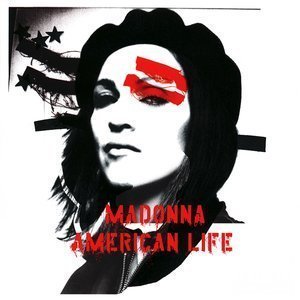
American Life by Madonna
Album
American Life is the ninth studio album by American singer and songwriter Madonna. It was first...
Folk
Daniel Boyd (1066 KP) rated Overlord (2018) in Movies
Feb 6, 2019 (Updated Feb 6, 2019)
The movie opens with a fantastically shot plane crash sequence that manages to convey a sense of extreme intensity as Private Boyce jumps out the exploding plane that was carrying his squad and plummets to the ground below. This sequence also does a brilliant job of setting the tone of the movie that the audience can expect going forward.
Surprisingly, the Nazi zombie stuff doesn't actually make an appearance until about 1/3 into the movie and the first act is spent telling a more traditional and realistic war story and setting up the relationships between the characters that we are following. Even when we do start to see some of the weirder stuff taking place, it is fairly reserved in comparison to what you might be expecting. This isn't Dead Snow or Wolfenstein. However, that doesn't necessarily mean that it's underwhelming, the few amount of monstrosities that we actually get to see are impactful and feel genuinely threatening.
The cast are serviceable in their roles, even if they are fairly stereotypical. The stand out is Pilou Asbaek, who may know as the evil Euron Greyjoy from Game Of Thrones. Here, he plays the dastardly, villainous Nazi with a venomous snarl that really tells you everything that you need to know about his character and his intent.
The one negative I had with the movie were the few telegraphed jump-scares that the filmmakers threw in to remind us that this is supposed to be a horror movie, but thankfully there aren't too many of these present throughout the film.
Overall, this is a fun action/horror movie set against the backdrop of the Second World War that is a blast to sit through. There is plenty of cringe-inducing violence and gore created by mostly practical means that will scratch the horror itch that some audience members may be looking for and although this wasn't quite the movie that I was expecting going in based on the trailers, I can't say that I came away disappointed.

